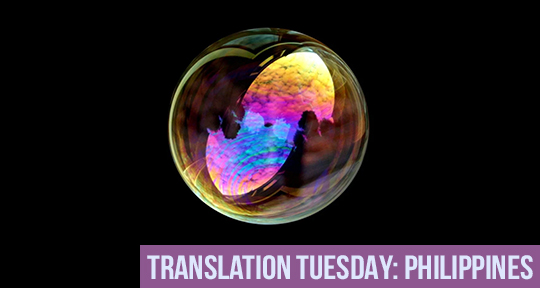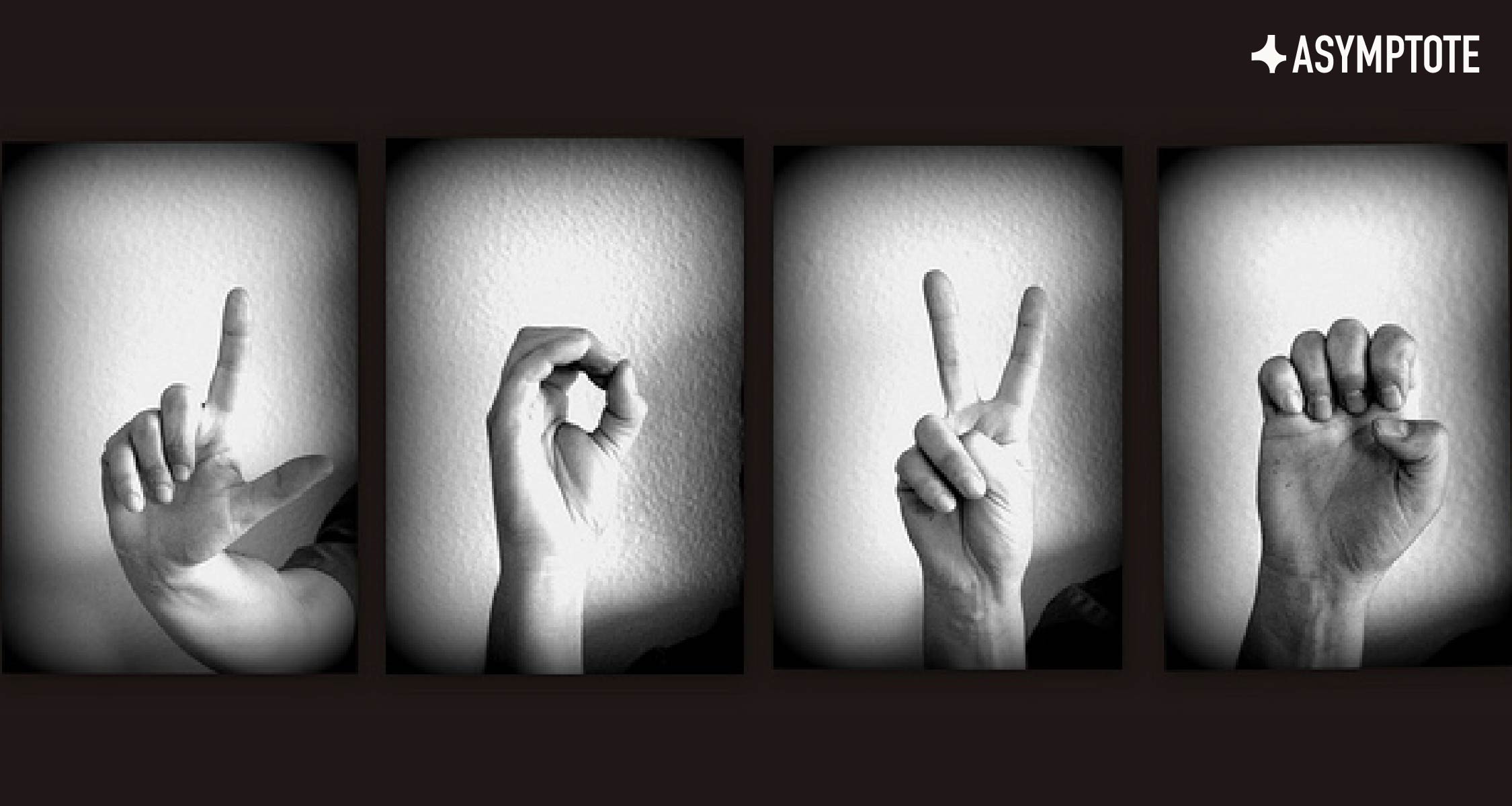The mania present in this week’s Translation Tuesday is forceful and visceral, poured forth with a tide of senses, memories, tastes, smells, and visions. Upon the arrival of a spectral personification named Sandali, the inner monologue of Luna Sicat-Cleto’s narrator detonates, threading seamlessly through the past, the present, and the future. The word sandali, in Filipino, can be roughly translated as “moment.” In this story, we are reminded of exactly how broad, and how various, a moment can be.
That moment comes, unexpected, uninvited, she just appears, like a visitor, a visitor whom I cannot shove off, I let her inside, offer her coffee, she will not drink the coffee, she will merely stroke the cup’s ear, and will look at me from head to toe, like a child, she will stare, and I know that she is sizing me up because I too am sizing her, she will look out the window and whisper something about the weather, I will nod, as if I had heard what she had whispered but actually hadn’t, I have been deaf for a long time, I don’t recognize the noise I heard, I no longer know if birds still sing in the morning, whatever noise I heard, I’m sure that my eardrums have already burst, a noise that had pierced through to my brain, but it’s funny that I still recognize the sound of my own name, and this gives me hope, hope is a dangerous thing, they say that it is what thrusts people to madness, and when the visitor called my name, I did not know if I was dreaming, I lifted my head up and smiled, I was about to mention something about the weather, or our weight, whether we have gained or lost some, but I had forgotten what I was about to say as soon as she squeezed my palm, where the pulse lies, where the welt from the blade rested and she whispered: flee, flee and I will know what she wanted to happen, she wanted to sleep with me, I will not object, I will be even the one to usher her to bed, and I will feel her trembling, I will take off her clothes and she will do the same and we will begin our voyage, that’s how I see it, a voyage I will not object to, I will try not to think, I will let it be, she will come again tomorrow, my door will be open, I will not refuse, for I want our world to be filled with our children, the whole universe even, so that I wouldn’t feel lonely anymore, isn’t it right, Sandali, for that is her name, Sandali, she has neither parent nor sibling, neither home nor job, she is not bound to anything or anytime. Sandali, her name does not suit her, perhaps I needn’t give her a name, she is like a poem, a poem that does not have a name, if a person labels a poem a poem, it vanishes, it disappears like bubbles that can no longer be touched.



